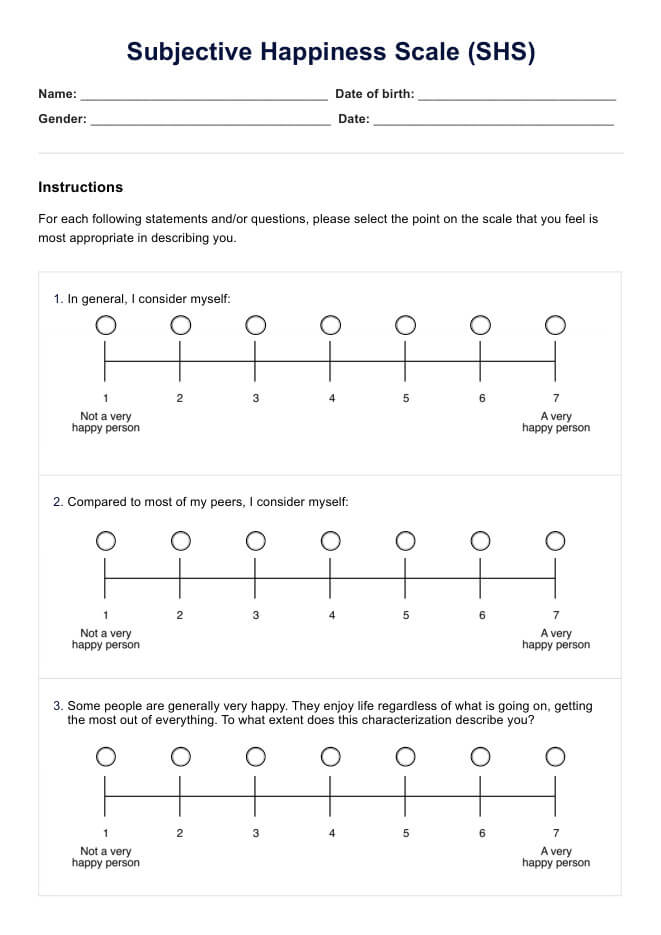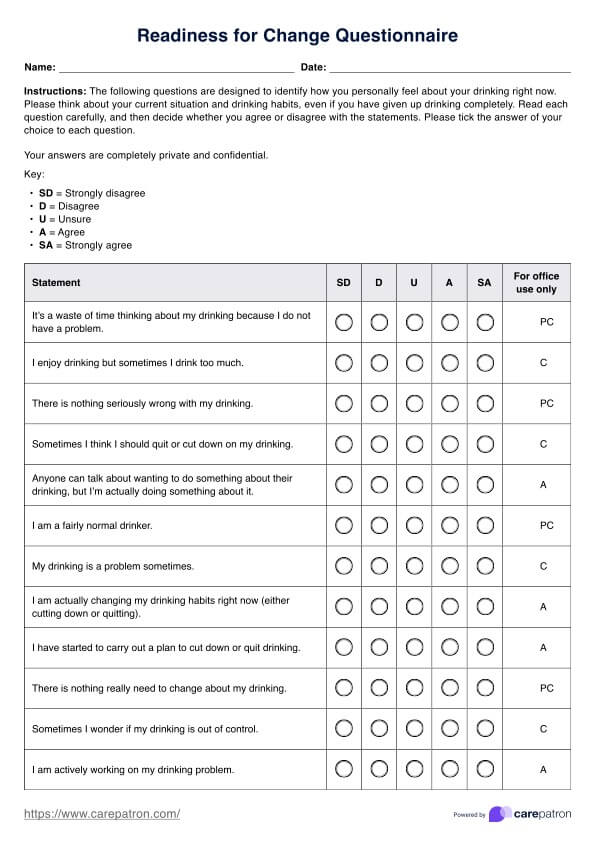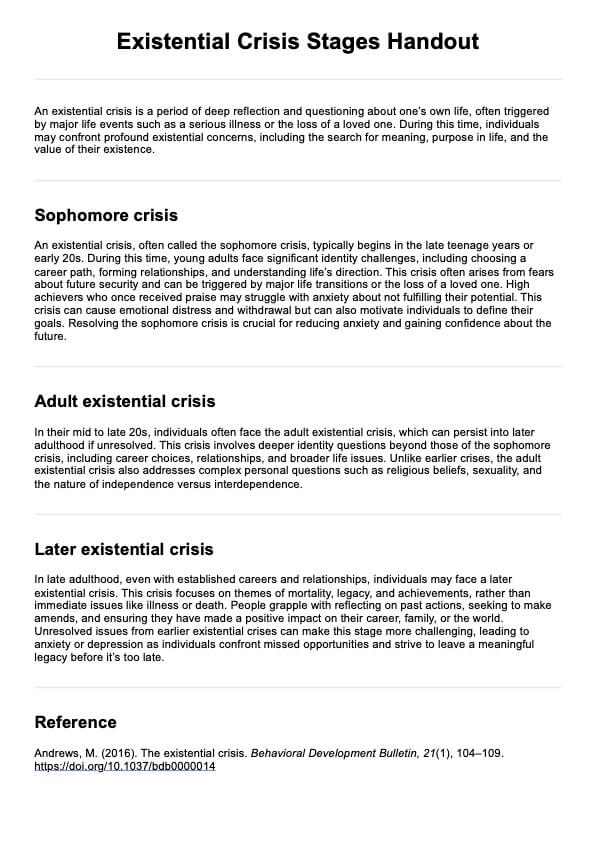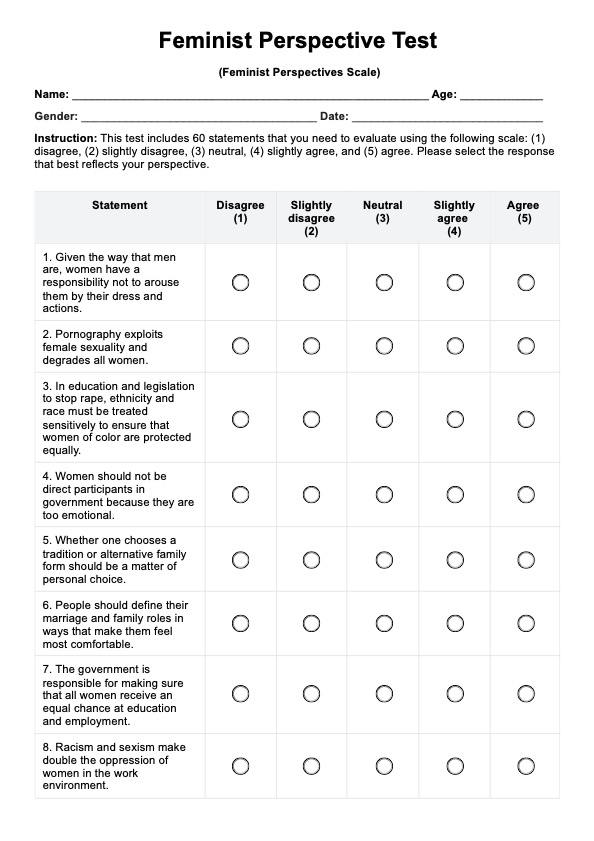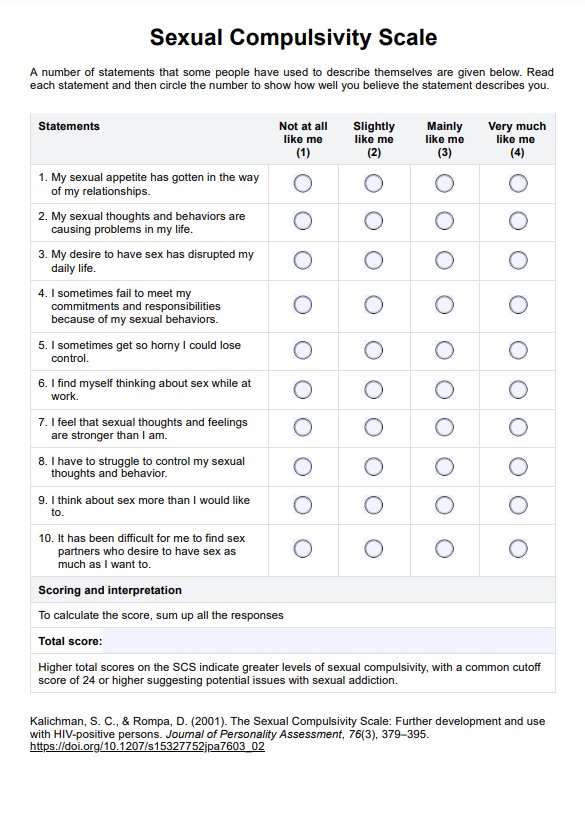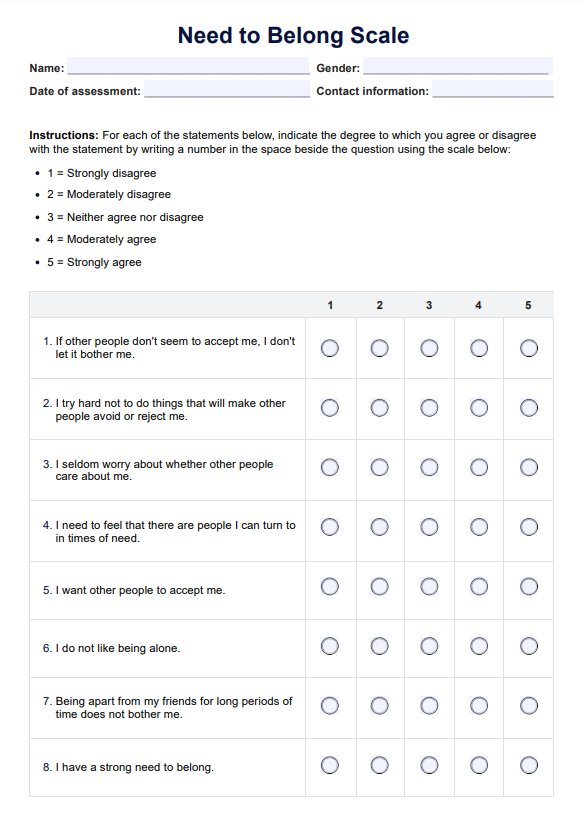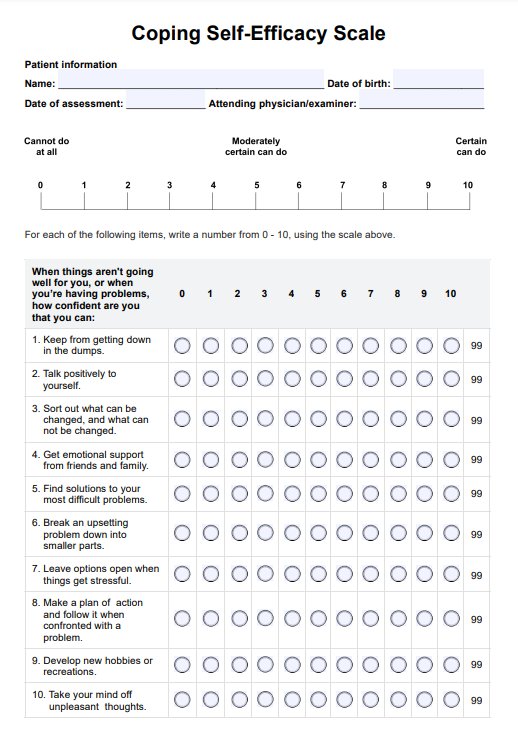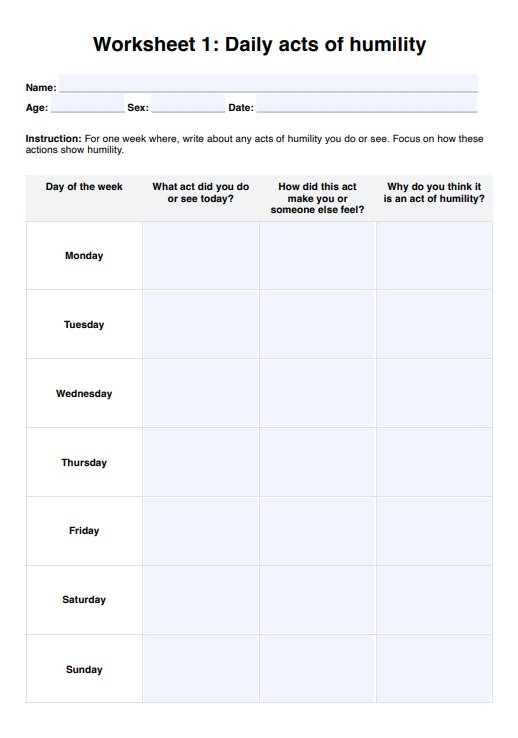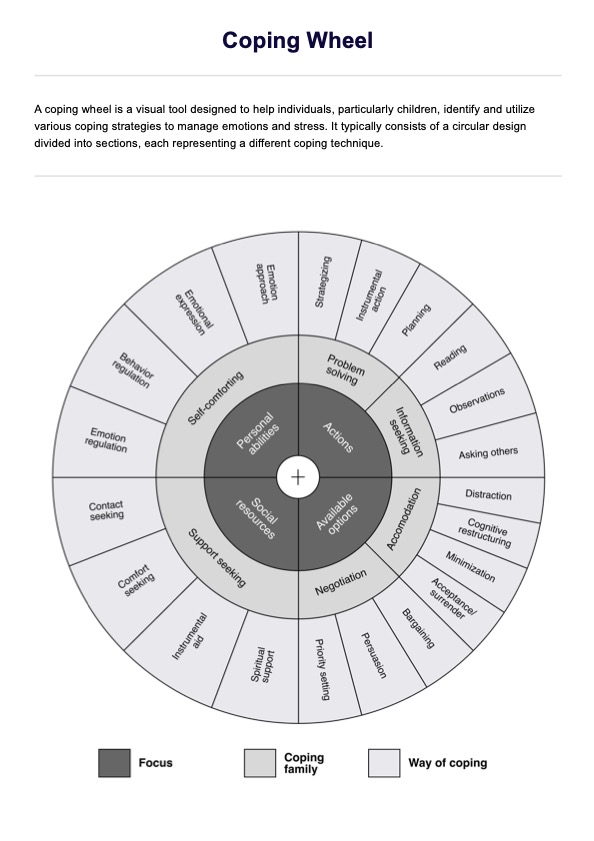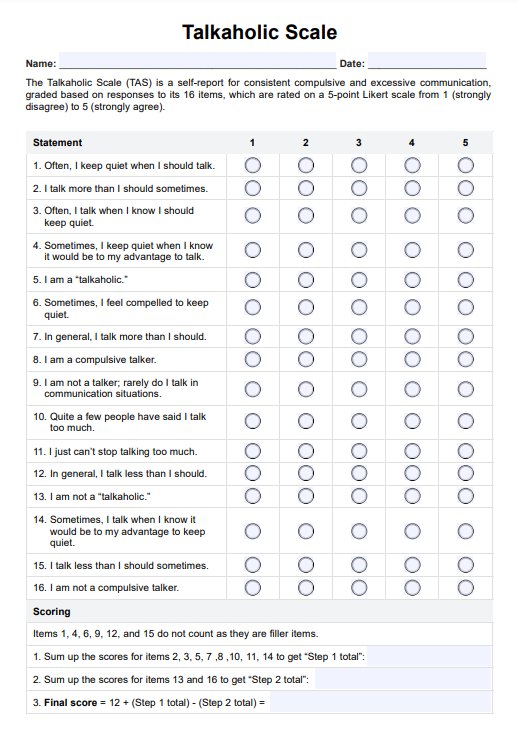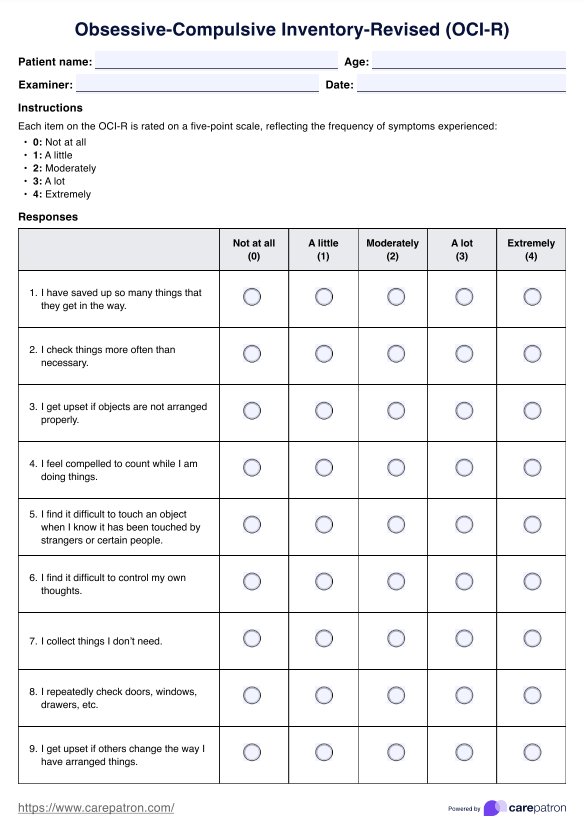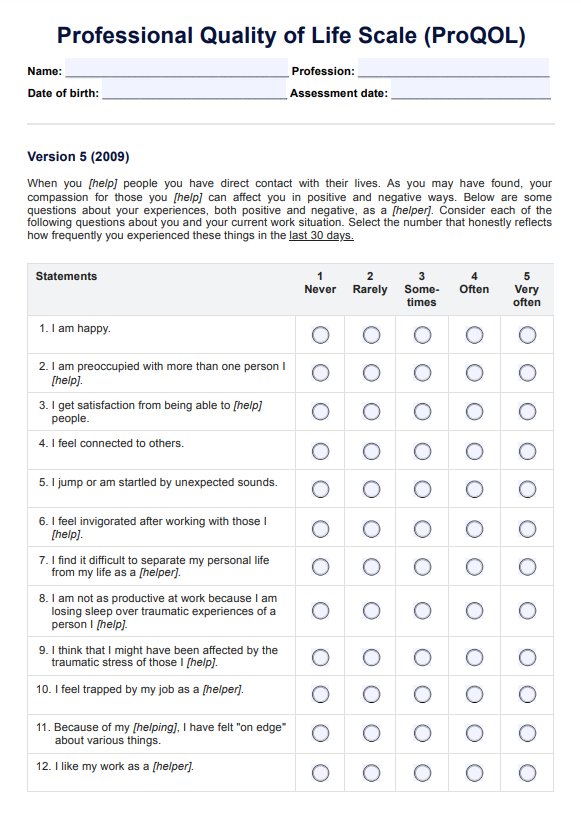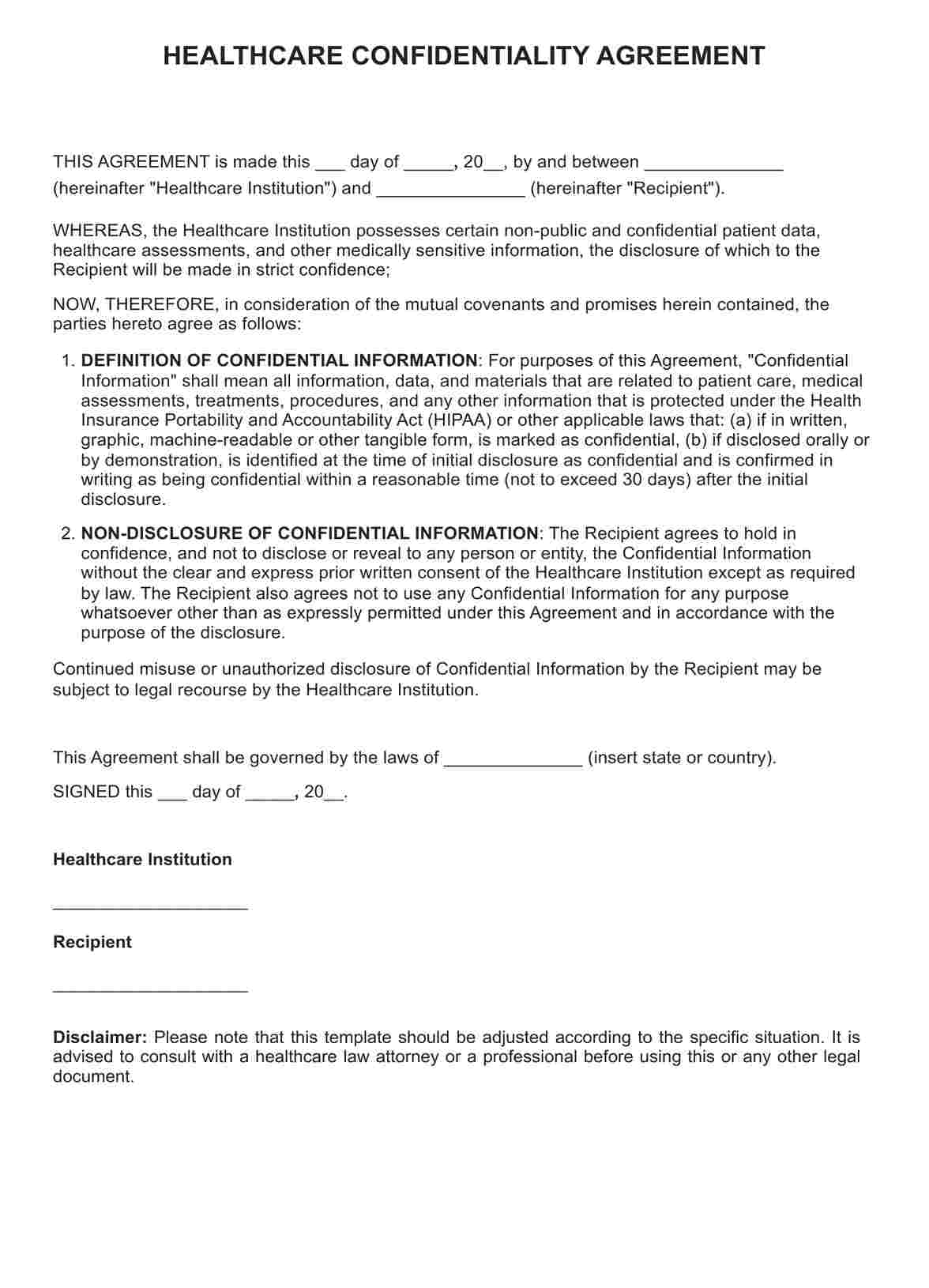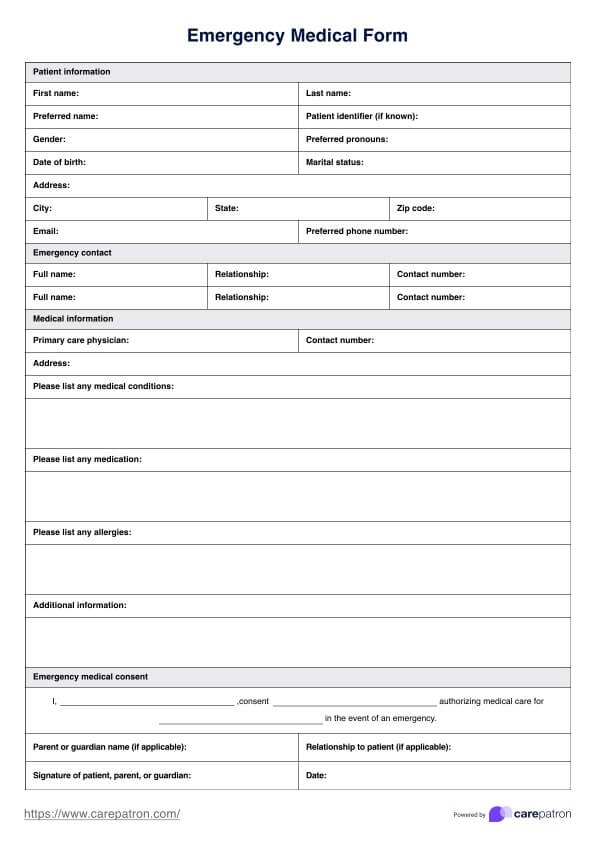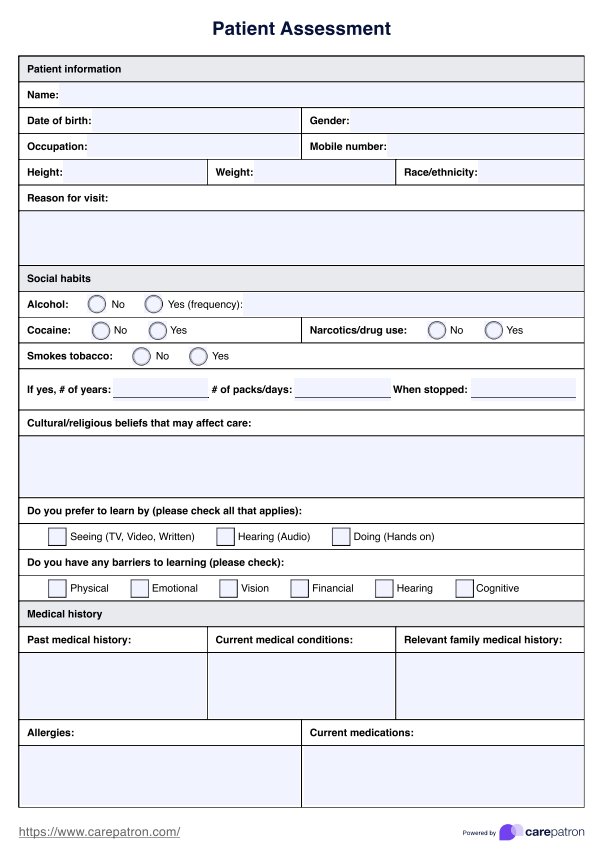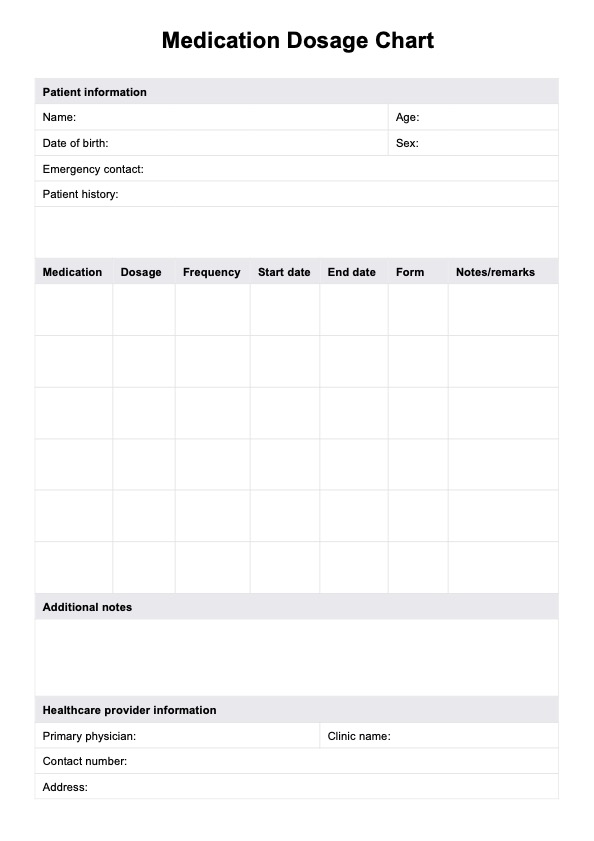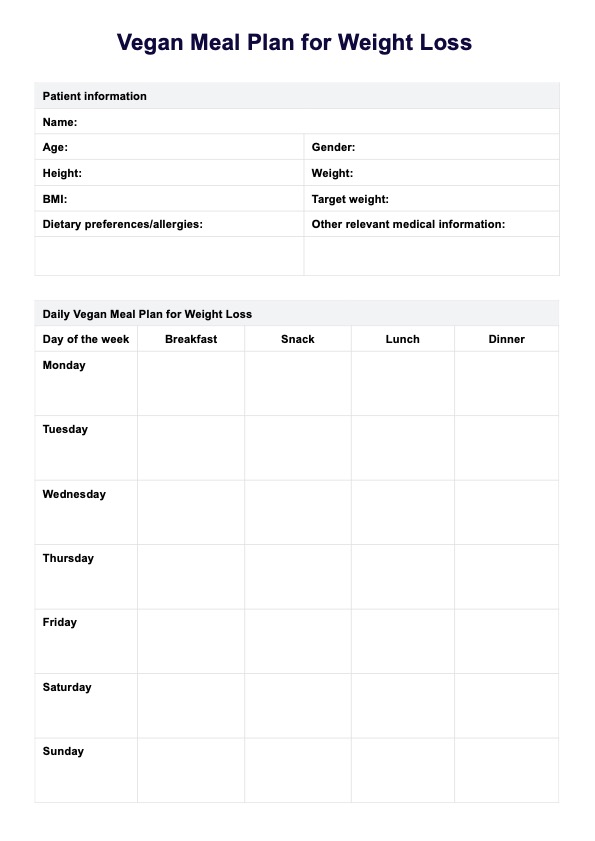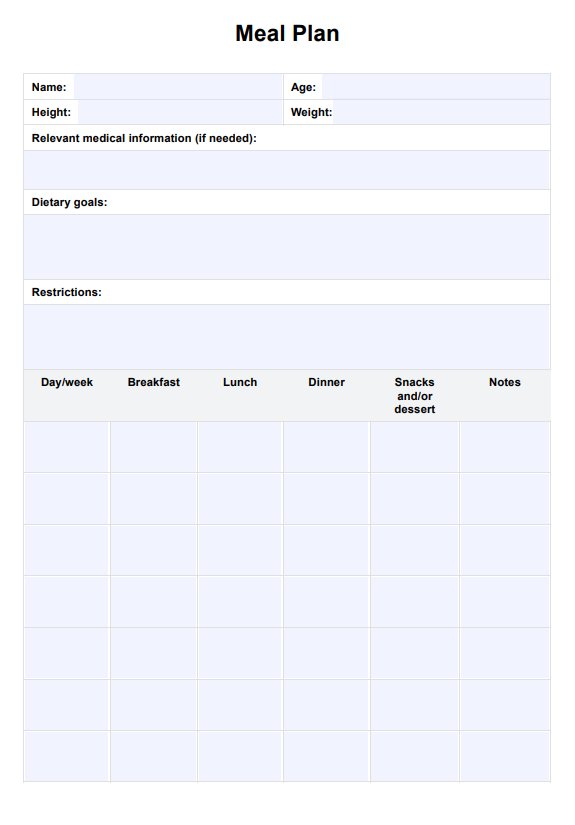Health Journal Template
Access Carepatron's free Health Journal Template and example to help patients track their health and fitness goals effectively.


Importance of keeping a journal for overall well-being and health
For medical professionals, encouraging patients to maintain their own journal can be instrumental in supporting overall well-being. Keeping a health journal offers measurable benefits across both mental and physical domains. Evidence shows that journaling helps reduce stress (Smyth et al., 2018), manage anxiety, and support emotional regulation, all of which contribute to improved patient outcomes.
When used consistently, journaling routines allow practitioners to track progress, monitor symptoms, and identify patterns that may affect nutrition, exercise, and sleep quality. This structured documentation helps focus on specific goals, maintain accountability, and support adherence to treatment plans. It also facilitates better communication between providers and patients. Incorporating journaling into care plans can enhance goal-setting around stress management, fitness, and lifestyle habits.
Health Journal Template
Health Journal Template Example
What is a Health Journal Template?
A Health Journal Template is a structured document designed to help medical professionals organize, monitor, and analyze a patient’s health information efficiently. It streamlines the process of recording vital signs, symptoms, medications, test results, and lifestyle factors such as diet and exercise.
The layout is built for clarity, allowing healthcare providers to quickly access relevant pages and personalize entries based on patient-specific circumstances. This structured approach helps practitioners maintain accurate records, reduce errors, and save time during consultations.
The template also supports mental health tracking by encouraging patients to record their feelings like mood changes. A Health Journal Template fits easily into an existing schedule, enabling a consistent workflow that enhances care coordination. Professionals can use it to document and review progress over time, leading to more positive outcomes and helping clients achieve their health goal.
How does this printable Health Journal Template work?
Carepatron’s Health Journal Template is built for seamless integration into everyday clinical practice. Follow these four simple steps to get started and make the most of this powerful documentation tool.
Step 1: Access the template
Click the “Use template” button on this page to instantly begin. You’ll be directed to download the Carepatron app, where the Health Journal Template is ready for use. The app is designed for fast access and straightforward onboarding—no complicated setup or navigation required. You can also download a print-ready PDF version by choosing "Download."
Step 2: Use the template in patient consultation
During appointments, have the document ready. The structured format ensures that you won’t miss key details, and it supports accurate, consistent health tracking across multiple visits.
Step 3: Educate the patient on how to use the journal
Guide patients on how they can contribute by recording daily symptoms, moods, or lifestyle habits between visits. Remind them that this is part of taking care of themselves. This empowers patients while giving you more detailed insights to support data-informed clinical decisions and more personalized care planning.
Step 4: Store the document
Once complete, you can securely store the journal in the patient’s digital records within Carepatron. With just a few clicks, the Health Journal becomes a routine part of your clinical documentation—easy to implement, access, and revisit during future appointments. If you are using physical copies, make sure you store them on secure filing cabinets.
Benefits of using this health diary template
Using Carepatron’s Health Journal Template allows medical professionals to streamline documentation and improve patient monitoring. The structured format functions as a comprehensive health planner, enabling consistent tracking of symptoms, medications, vital signs, meals, water intake, and lifestyle habits.
Practitioners can customize the template to suit individual patient needs, making it adaptable for chronic condition management, preventive care, or post-treatment follow-ups. Centralizing patient data in one accessible location enhances continuity of care and reduces the risk of missing important information during appointments. By incorporating health planner templates into their workflow, practitioners can support more informed decision-making and better treatment adherence.
Additionally, the journal encourages patient involvement, making it easier to evaluate behavior patterns and progress over time. Overall, the template saves time, increases documentation accuracy, and supports a more proactive approach to patient care without complicating healthcare professionals' day-to-day responsibilities.
References
Smyth, J. M., Johnson, J. A., Auer, B. J., Lehman, E., Talamo, G., & Sciamanna, C. N. (2018). Online positive affect journaling in the improvement of mental distress and well-being in general medical patients with elevated anxiety symptoms: A preliminary randomized controlled trial. JMIR Mental Health, 5(4). https://doi.org/10.2196/11290
Commonly asked questions
Medical professionals can use structured templates like Carepatron’s Health Journal. This approach ensures consistency, accuracy, and ease of use across different clinical scenarios.
A health journal enables better tracking of physical and mental health trends, helping identify patterns that inform treatment decisions. It also promotes patient accountability and supports long-term care planning. Giving them to your patients makes them feel that aside from a journal, they have their own planner, as they can include their goals and reflections on what to do.
A health journal is most useful when managing chronic conditions, starting a new treatment plan, or monitoring lifestyle changes. It can also be initiated proactively to support preventive care and early detection of health issues.


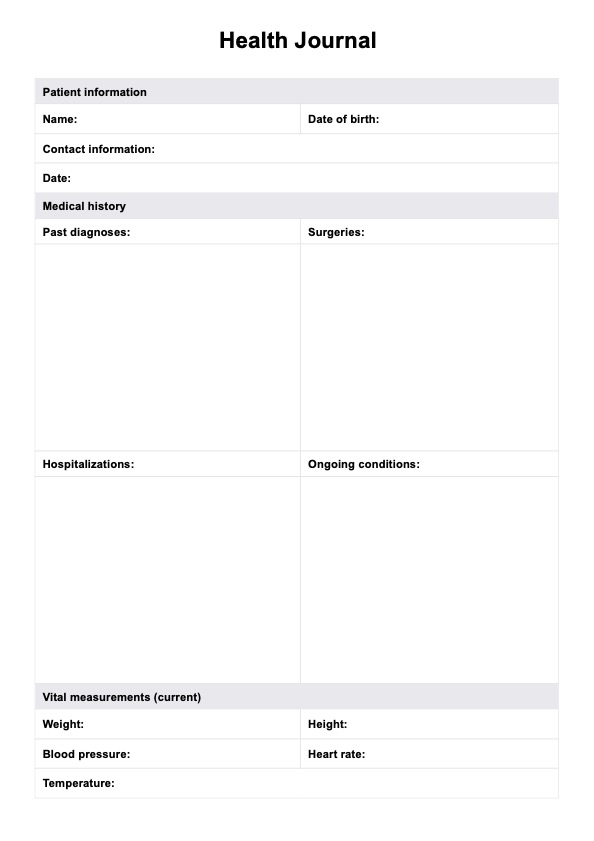
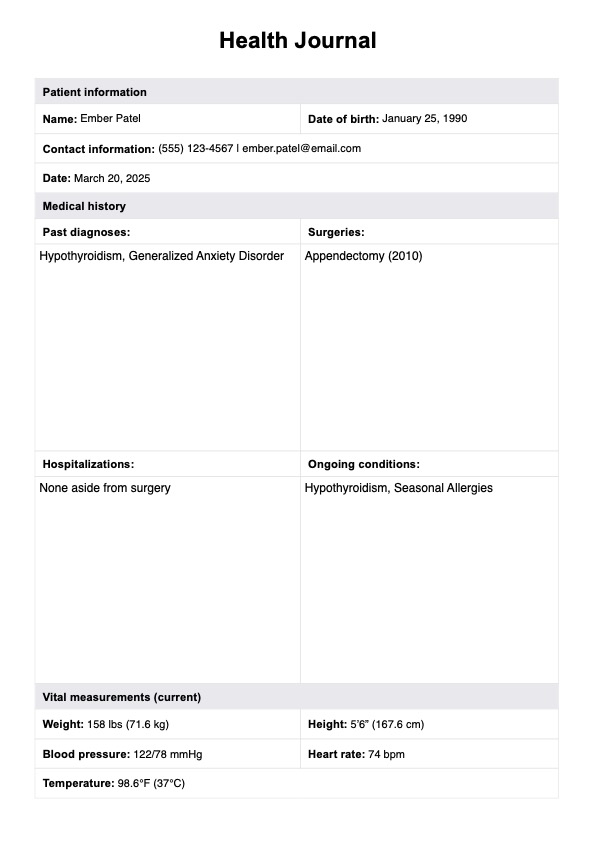

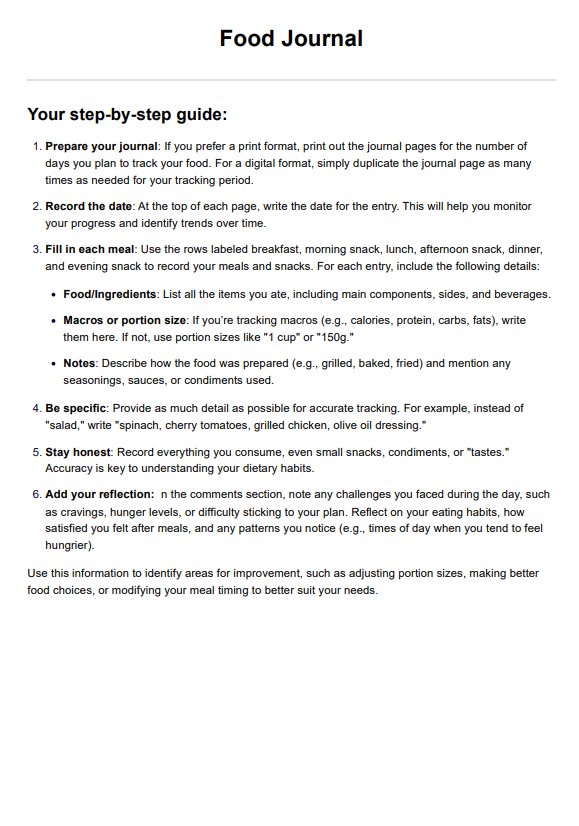
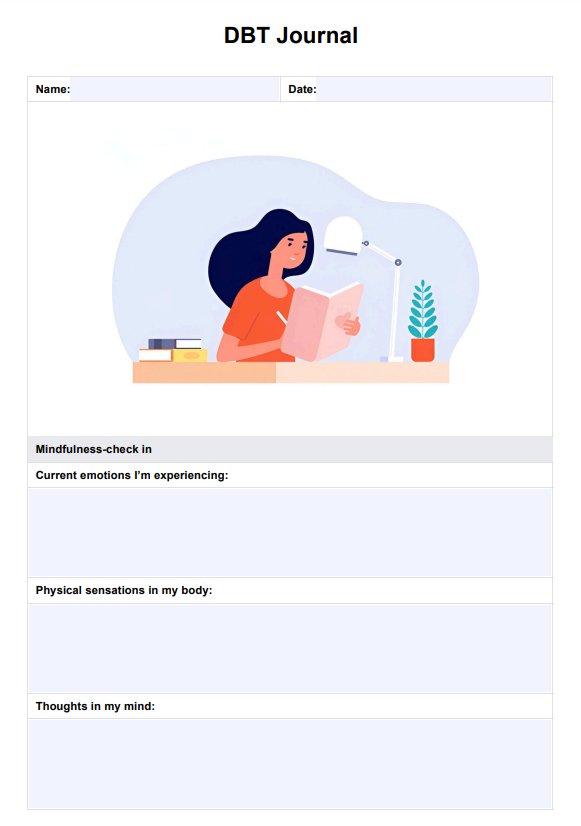


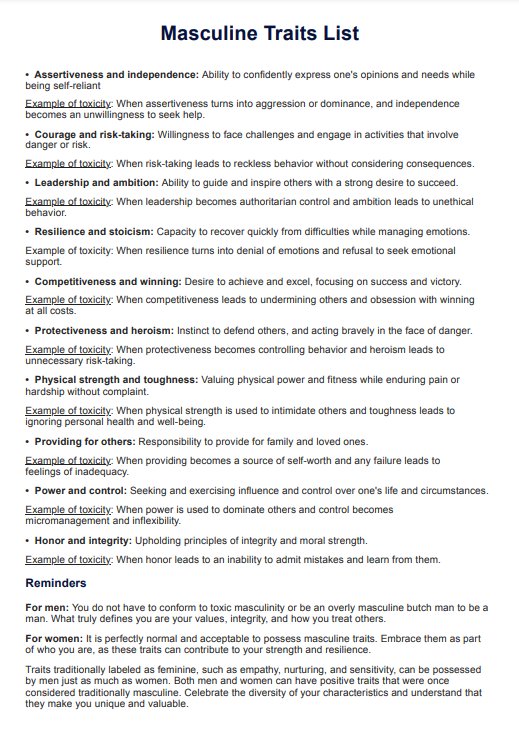












-template.jpg)
















































